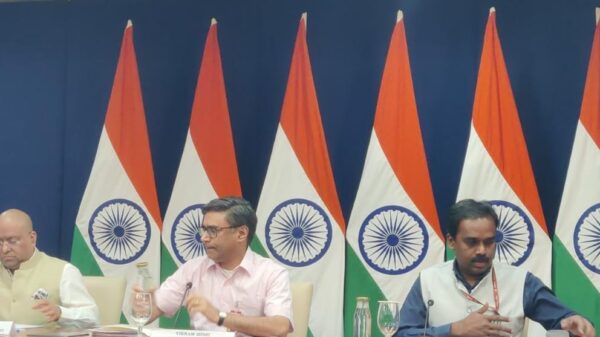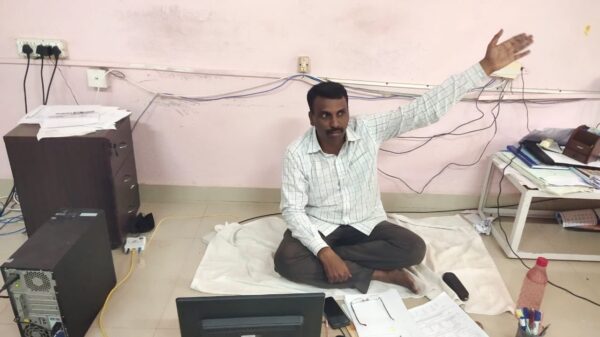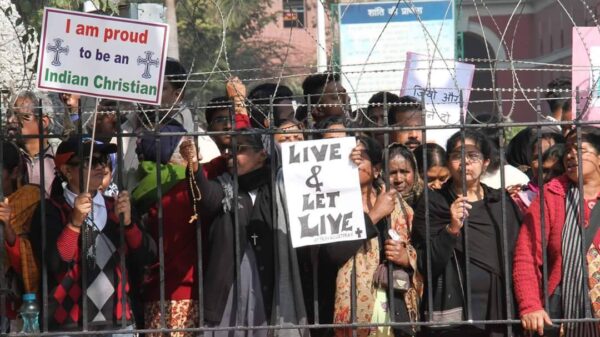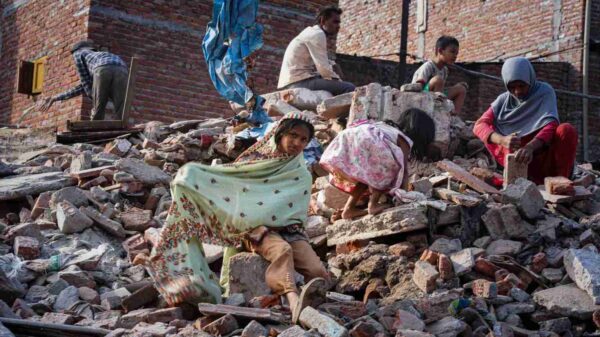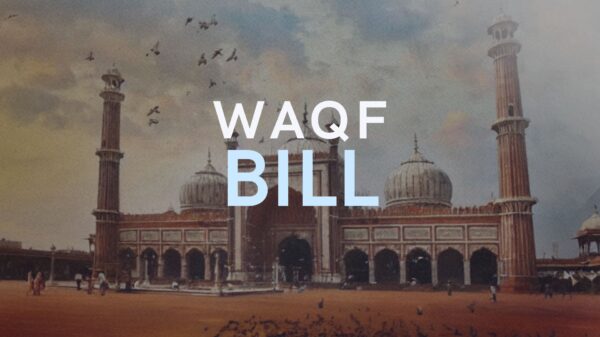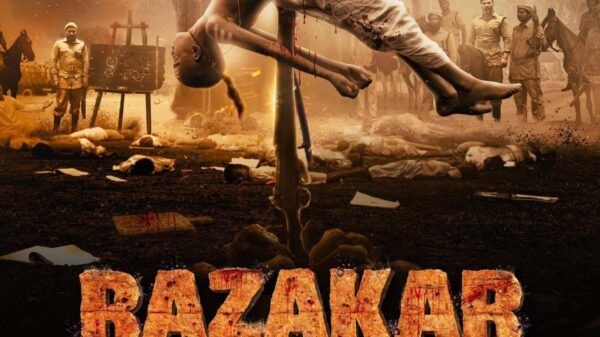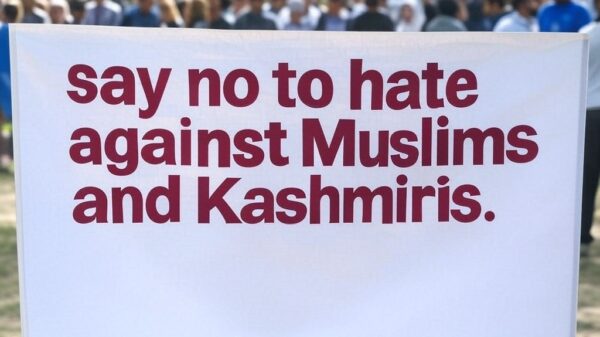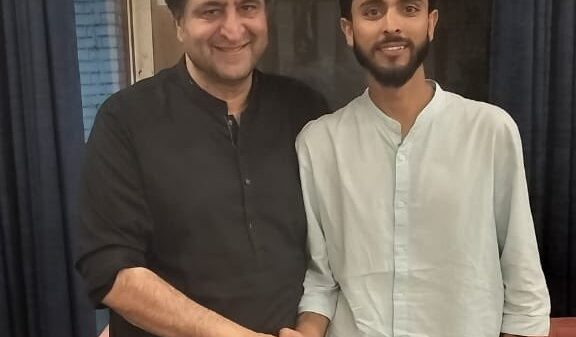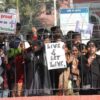MD ALI
It has been observed that propaganda films often take a complex phenomenon—a subject of rigorous research and nuanced investigation—and reduce it to a simplistic narrative marked by distortion, misinformation, and misrepresentation. A recent cinematic example is Vivek Agnihotri’s The Kashmir Files (2022). The Kashmir issue, which is an intricate and deeply rooted geo-political matter predating post-colonial India, has been presented in a reductive Hindu-Muslim binary, wherein Muslims are portrayed in a diabolical, sadistic, and devilish manner. The greatest irony lies in the fact that the film—widely regarded as divisive and hateful—was awarded the National Award for Best Feature Film on “National Integration.”
The irony does not end there. The 2024 film Razakar: The Silent Genocide of Hyderabad, produced by BJP leader Gudur Narayana Reddy, was honoured by the Telangana Gaddar Film Awards (TGFA) in three different categories: Best Film in the Environment/Heritage category, Best Music Direction, and Best Makeup Artist, on June 14, 2025. The TGFA is the first state-sponsored film award initiative in Telangana since its formation in 2014. It was established in May 2025 by the Telangana Film Development Corporation (TFDC), under the aegis of the Government of Telangana. The award is named after the revolutionary Telugu poet, singer, and communist balladeer Gaddar.
Razakar claims to depict the struggle of the erstwhile Hyderabad State against the Nizam’s militia, the Razakars, and their “oppression” of Hindus in particular. However, film reviewers have considered it the latest propaganda project in a series that peddles hate. The situation became a subject of contestation and controversy when the awards were presented by the Chief Minister of Telangana, Revanth Reddy of the Indian National Congress.
The film was a box-office failure, earning a mere ₹4.18 crore in its lifetime collection, according to Sacnilk reports. Despite receiving poor reception from both critics and audiences, its recognition by a state-sponsored award raises serious concerns about the arbitrary exercise of institutional power. This is especially contentious given that the recognition occurred under the leadership of a political party that publicly claims to oppose hate-driven politics.
In an era when young minds are being mobilized in hate campaigns, the endorsement of such films—especially by a prominent Congress leader—is perplexing and risks leaving the party’s supporters feeling disenchanted or betrayed.
Several research studies conclude that communal tensions, vigilante lynching, violence against minorities, and hate speech have increased under BJP rule (Mallapur, 2019).
However, evidence also suggests that the BJP derives some electoral gains from the violence resulting from communal polarization (Nellis et al., 2016).
Producer Gudur Narayan Reddy expressed his gratitude to Chief Minister Revanth Reddy and the jury members for his film receiving three honours at the Gaddar Telangana Film Awards. Reddy stated that he produced the film with the intent of educating today’s youth about this painful period in history. “Many are unaware of the suffering endured by Hindus at the hands of the Razakars. I wanted this story to reach the younger generation,” he said.
The annexation of Hyderabad and the subsequent defeat of the Nizam have been reductively portrayed in the film as a simplistic Hindu-Muslim conflict. The film’s promotional materials, particularly its posters, make profuse use of emotionally charged visual cues, strategically designed to evoke visceral reactions. One of the posters depicts a slain young boy impaled through the abdomen by a rifle-mounted bayonet, his body held upright like a gruesome display. A child viewer might instinctively curl up in fear. The semiotics are deployed in such a way that the majority audience is led to identify with the victims and internalize a constructed common enemy, as the film appears to instruct them. The boy’s body is topless, clad in a dhoti, with a shikha (a traditional tuft of hair associated with orthodox Hindu identity) on his otherwise bald head—visual markers that unmistakably signal his religious identity. This graphic imagery is not merely an artistic choice but a calculated use of communal symbolism.
According to a report published in The Hindu, a gathering of civil rights groups under the banner of the Association for Protection of Civil Rights stated on Thursday that awarding the film Razakar is a violation of the revolutionary spirit of Gaddar and an insult to Telangana’s culture and history. “Gaddar refused the Nandi Awards twice. Instituting an award in his name is one thing—but handing it over to a divisive, mischievous, and historically toxic movie like Razakar is plain wrong,” said N. Venugopal, speaking at a press conference in Hyderabad. “Revoke the Gaddar Award conferred on the Razakar movie, and reassess the award selection process,” added a spokesperson for the Association.
Cinematic expression has long been susceptible to propaganda. The democracy of cinematic hate has evolved and expanded with shifting political powers. A cynical approach—firmly planted against progressive narratives—has taken root, digging into the past with the wrong tools and seeking preferred answers, rather than acknowledging what history actually records, regardless of any agenda.
Prakash Pecheti of The South First, reviewing Razakar, writes: “Despite being made on modest budgets, the film rewrites another right-wing Hindutva narrative similar to The Kashmir Files (2022) and The Kerala Story (2023), albeit with less art. But not everyone would vouch for the gore and violence depicted in the flick because of its right-wing Hindutva narrative.”
M. Ravibabu, a retired civil servant and co-founder of Anekdhara—a public policy forum—describes the film in his article for The Wire as a distorted portrayal of history. He adds, “In these days of lies and half-truths, facts don’t matter. As a Telugu saying goes, it is an ‘attempt to collect money on dead bodies.’”




